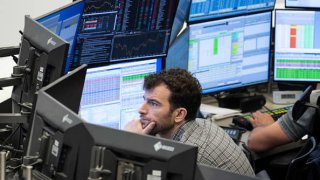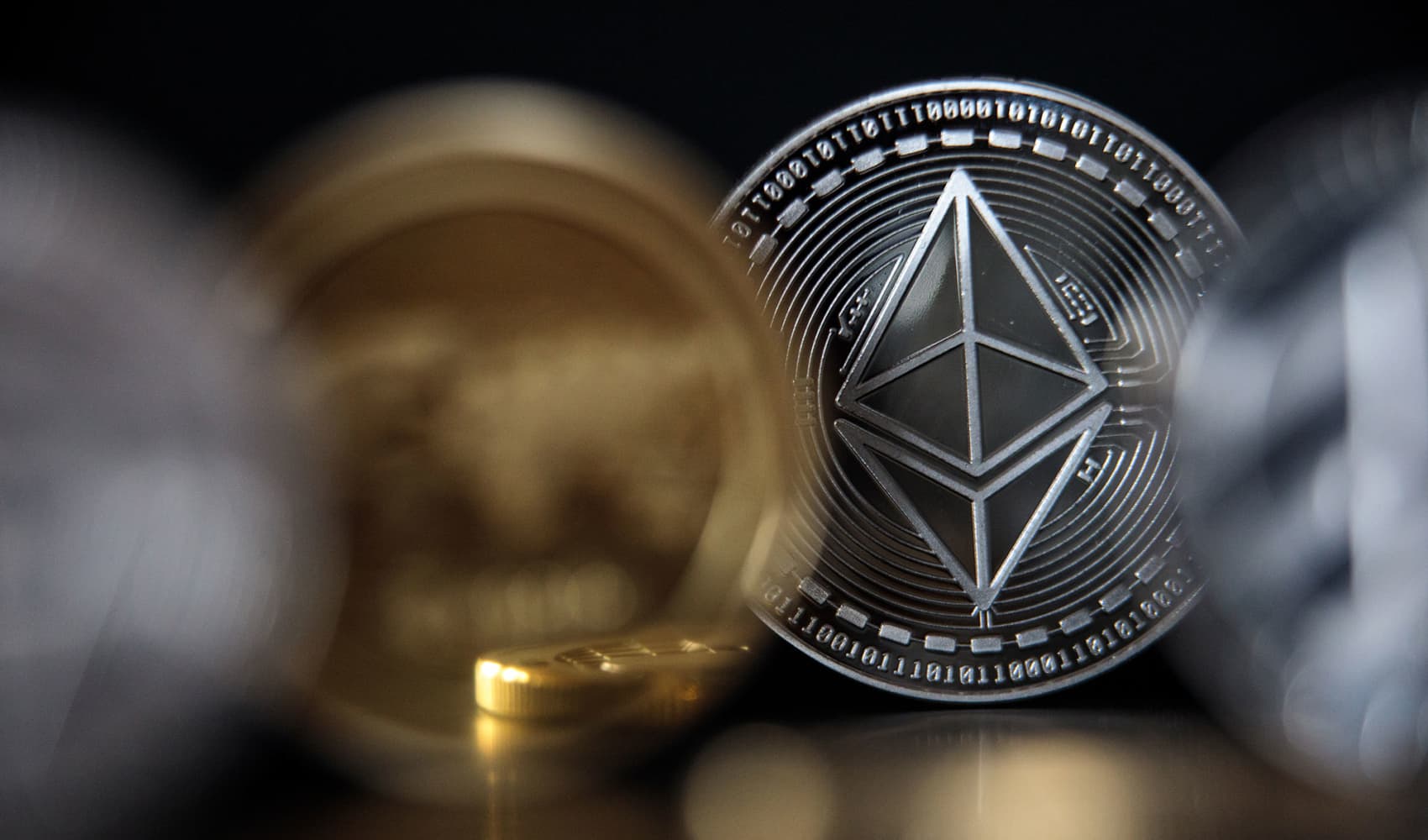
This is CNBC's live blog covering European markets.
European equity markets closed at their lowest level since the start of the year on Friday, as investors digested comments from U.S. monetary policymakers and global sentiment stutters.
The pan-European Stoxx 600 index fell 1.3% in its fourth straight decline, marking a close last seen on Jan 2., according to Dow Jones data.
All sectors were lower, with mining stocks dropping by 3.35% and tech stocks down by 2.3%.
Get Connecticut local news, weather forecasts and entertainment stories to your inbox. Sign up for NBC Connecticut newsletters.
Federal Reserve Chairman Jerome Powell acknowledged recent signs of cooling inflation but said Thursday that the central bank would be "resolute" in its commitment to its 2% mandate. Powell did not lay out a specific policy path but also gave no indication that a further interest rate hike was on the cards.
The Fed opted to hold interest rates steady at its last meeting in September, but did suggest there would be one more hike before the end of the year.
U.S. stocks were down Friday morning as traders focused on a recent run higher in the 10-year Treasury yield.
Money Report
Correction: This story has been updated to reflect when the Stoxx 600 last closed at this level.
UK 30-year borrowing costs hit highest level since 1998
The yield on long-dated U.K. government bonds on Friday reached its highest level since 1998, according to Reuters data, reflecting a global move higher in yields as Middle East turmoil and a message of higher for longer rates hit home.
The 30-year gilt yield was 5.107% at 2:55 p.m. London time, after going as high as 5.158% in the early afternoon.
Figures published Friday morning showed U.K. borrowing was £20 billion ($24.28 billion) lower than expected for the first six months of the financial year.
This was still the sixth highest September borrowing since monthly records began in 1993, the Office for National Statistics said. U.K. net debt is now 97.8% of GDP, 2.1 percentage points higher than in September 2022.
"Higher gilt yields ... make the U.K.'s long-term fiscal outlook even more challenging," Paul Dales, chief U.K. economist at Capital Economics, said in a note.
Yields are also in focus in the U.S., where the benchmark 10-year Treasury crossed 5% for the first time in 16 years on Thursday.
— Jenni Reid
U.S. stocks open lower
U.S. stocks were down as Friday trading kicked off.
The Dow was 0.2% lower shortly after 9:30 a.m. ET, while the S&P 500 and Nasdaq Composite lost 0.1% and 0.2%, respectively.
All three indexes are also on pace to end the week with losses.
— Alex Harring
Gold hits 3-month peak, on pace for second straight weekly gain
Gold climbed to a three-month peak on Friday, putting it on pace for a second straight weekly rise as fears of heightening conflict in the Middle East pushed investors towards safe-haven assets.
Gold is up 2.5% so far this week after gaining 5.22% last week. Spot gold was up 0.3% at $1,979.3 per ounce, after hitting its highest since July 20. U.S. gold futures added 0.5% to $1,991.4.
The VanEck Gold Miners ETF (GDX) is up 1.9% so far this week, on track for its first positive week in three. B2Gold, Barrick Gold and New Gold are all up about 5% or greater this week.
— Pia Singh, Gina Francolla
Bitcoin poised to see best week since June
Bitcoin is on track to post its biggest weekly gain in about four months.
The digital currency is up slightly more than 11% week to date. If that holds through Friday, it would mark the best week since the one ending June 23, when bitcoin climbed 17.1%.
— Alex Harring, Gina Francolla
German producer prices post biggest decline on record
German producer prices posted their biggest year-on-year decline for September, encouraging views that inflation is easing in Europe's largest economy. The federal statistics office's producer price records date back to 1949.
The producer prices of industrial products were down 14.7% in September from the previous year, a steeper decline than the 12.6% drop in August.
The decline in prices is mainly attributable to a base effect caused by high price levels in 2022 as a result of the war in Ukraine.
— Hannah Ward-Glenton
European markets open at seven-month low on stuttering global sentiment
European equity markets opened at a seven-month low Friday, Reuters data shows, as investors digest comments out of the U.S. and global sentiment stutters.
The pan-European Stoxx 600 index opened 0.7% down, with most sectors in negative territory. Mining stocks saw the biggest drop with a 1.5% decline, followed by household goods, which fell 1.3%. Oil and gas bucked the trend with a 0.2% uptick.
— Hannah Ward-Glenton
U.S. 10-year Treasury yield crosses 5% for the first time since 2007
The yield on the benchmark U.S. 10-year Treasury crossed 5% for the first time in 16 years.
The 10-year Treasury yield hit 5.001% at 5:02 p.m. ET, the first time it has traded above that key level since July 20, 2007 when it yielded as high as 5.029%.
— Gina Francolla, Christine Wang
CNBC Pro: Should you lock in those high yields right now? Here's what Wall Street is saying, and how to invest
A bond bear market has dominated this year.
But with 10-year Treasury yields surging to a high not seen since 2007 on Thursday, many investors might now be tempted to lock in those high yields and buy into bonds. The 2-year Treasury yield was at 5.16%, near levels last seen in 2006.
Volatility in the bond market may, however, cause some hesitation among investors. Wall Street weighs in on the right moves to make.
CNBC Pro subscribers can read more here.
— Weizhen Tan
European markets: Here are the opening calls
European stock markets are set to open lower Friday, according to IG data. Britain's FTSE looks set to fall 28 points to 7,477 and Germany's DAX 79 points to 14,958. France's CAC is set to drop 45 points to 6,873, and Italy's MIB 226 points down to 27,471.
— Hannah Ward-Glenton






